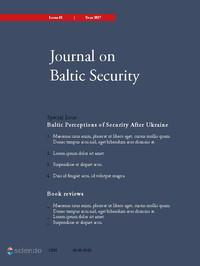Volume 2, Issue 2 (2016), December 2016

Order by:
Pub. online: 31 Dec 2016
Type: Editorial
 Open Access
Open Access
Pub. online: 31 Dec 2016
Type: Research Article
 Open Access
Open Access
Abstract
Pub. online: 31 Dec 2016
Type: Research Article
 Open Access
Open Access
Abstract
Pub. online: 31 Dec 2016
Type: Research Article
 Open Access
Open Access
Abstract
Pub. online: 31 Dec 2016
Type: Research Article
 Open Access
Open Access
Abstract
Pub. online: 31 Dec 2016
Type: Book Review
 Open Access
Open Access
Pub. online: 31 Dec 2016
Type: Book Review
 Open Access
Open Access
Pub. online: 31 Dec 2016
Type: Book Review
 Open Access
Open Access